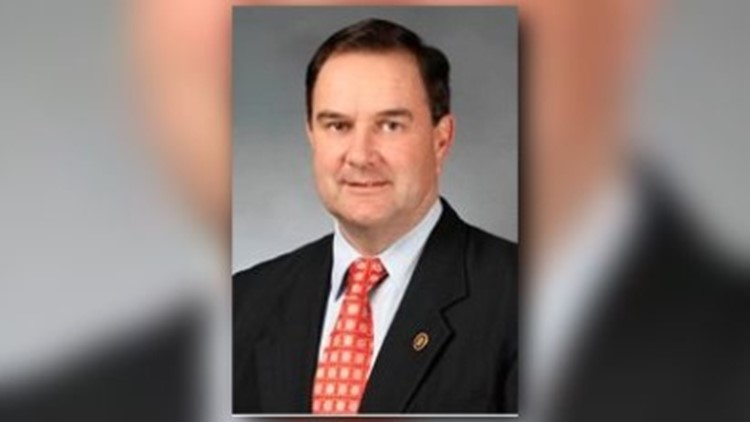JEFFERSON CITY, Mo. (AP) — The Missouri Democratic Party is suing to try to block the appointment of Mike Kehoe as lieutenant governor, reviving a longstanding debate over whether the governor has the power to fill the executive branch's No. 2 position or whether it can only be filled by voters.
The party filed the lawsuit late Monday, hours after Gov. Mike Parson announced Kehoe's appointment. Kehoe, a fellow Republican who was the state Senate's majority floor leader, took the oath of office shortly after the announcement.
Parson, who ascended from lieutenant governor when Eric Greitens resigned as governor this month amid a cloud of scandal, defended his action while announcing Kehoe's appointment.
"It is necessary and within my authority to appoint the next lieutenant governor," Parson said, echoing a position that many recent Missouri governors have taken.
Spokeswomen for Parson and Kehoe said they had no immediate comment about the lawsuit.
Unlike states where the governor and lieutenant governor are elected on a single ticket, the offices are elected separately in Missouri and the state constitution isn't clear on whether the No. 2 role can be filled through an appointment.
Michael Wolff, dean emeritus of the St. Louis University School of Law and former chief justice of the Missouri Supreme Court, said this was the first lawsuit in state history he was aware of that directly addressed the issue, meaning the question could finally be answered by the courts.
The Democrats filed their lawsuit with a World War II veteran from southern Missouri, Darrell Cope, asking Cole County Circuit Court to deem the Kehoe appointment illegal and order the office to remain vacant until an election can be held to fill it.
"Veterans like Darrell have earned the right to choose their own leaders by voting," said Missouri Democratic Party Chair Stephen Webber in a statement.
The petition alleges that the appointment would give Kehoe an unfair advantage over Democrats if he runs for election in 2020, and that Cope has a vested interest in the appointment because the state's lieutenant governor advocates for veterans and the elderly.
The lawsuit's argument boils down to a section of the state constitution that says the governor is able to fill vacancies "unless otherwise provided by law," and a state law that explains that the governor can make appointments but that includes several exceptions, including the office of lieutenant governor.
The lawsuit contends that this exemption shows that lawmakers never intended to give the governor the power to fill the No. 2 role.
Some lawyers disagree with that interpretation. Standing near Parson during Monday's announcement were Lowell Pearson, a Republican and former chief counsel to Gov. Matt Blunt, and Joe Bednar, a Democrat who served as legal counsel for three governors. Each told The Associated Press on Monday that they believed state law on the issue was too vague to trump the broad appointment powers detailed in the constitution.
Over the past 50 years Missouri governors have twice appointed lieutenant governors, but in each case the appointee had already been elected lieutenant governor and was just attempting to begin their term early. Joe Maxwell's appointment was successful in 2000, while a Senate leader in 1969 blocked just-elected Lt. Gov. William Morris from presiding over the upper chamber before his term officially began.
Before the appointment, Kehoe was a state Senator barred from running for re-election because of term limits.
Recent legislative efforts to clarify the process have failed. As state senators in 2013, Parson and Kehoe even voted in favor of a bill that would have directed the governor to call a special election for a new lieutenant governor, but the measure was vetoed by then-Gov. Jay Nixon, who believed a governor is able to appoint a lieutenant governor.
___
Follow Blake Nelson on Twitter: https://twitter.com/BCunninghamN



